The Nigerian sociopolitical space has been experiencing heat from politicians, political parties, and the citizens themselves since the early part of 2022. The various political parties’ primaries and their candidates have emerged. They have also chosen their deputies, who would serve as a political heavyweight in the battle for the soul of Nigeria. The journey to February 25, 2023, presidential election is months away, and Nigerians are seeking for the messiah to save the ship of Nigeria from drowning.
There are various questions to ask about Nigerian politics: what is the scramble for the soul of Nigeria all about? Do the politicians have the sincerity of purpose and political will to take the country from where it is to where Nigerians want it to be? Is the 2023 election a battle between evil and the lesser evils? Is it about the Nigerian citizens’ choosing between the devil and the deep blue sea? There are so many questions begging for answers, which are begging for answers. However, that would not be what I would be treating or answering in this article.
The search for the Nigerian messiah started in 2014 and led to the ousting of Goodluck Jonathan from office and the emergence of Buhari, which took Nigeria to a very low point. The search has resumed again, with an eye toward the 2023 general elections. Bola Ahmed Tinubu (APC) and Atiku Abubakar (PDP) are the popular candidates, while some Nigerians (youths especially) are looking for an alternative to the two most popular parties and gladiators. However, the two alternatives who are being conceived (Peter Obi and Rabiu Kwankwaso) were also members of the old guard before moving out in order to actualize their ambitions of being the president of Nigeria.
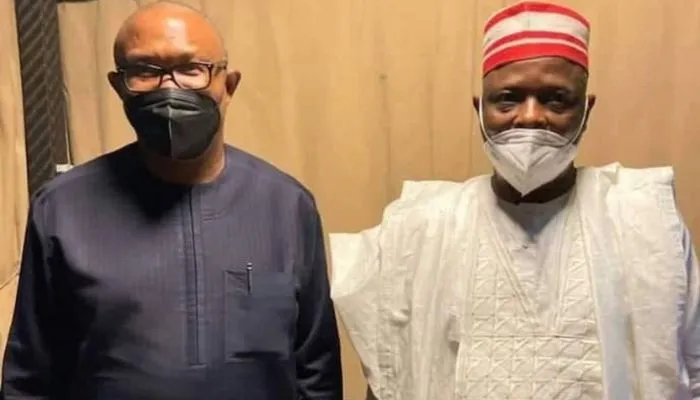
Peter Obi: The Okwute of Anambra
Peter Gregory Obi, CON, held the office of governor of Anambra State twice between 2006 and 2014. Following graduation, he entered the banking industry and worked his way up, assuming a number of executive roles at banks. Before quitting the job to enter politics, Obi was the chairman of Fidelity Bank during the early 2000s, when he was the youngest board member in Nigeria. Obi contested for the governorship position in 2003 as a candidate of the All Progressives Grand Alliance, but his main opponent was unlawfully declared the winner.
After three years of court fights, Obi was proclaimed the winner, and he took office in March 2006. Then, in November, he was impeached. The impeachment was later thrown out by the court, and in February 2007, he was reinstated. When a new election was held in April 2007, Obi was once more removed from office. However, the judges once more stepped in and decided that he should be permitted to serve out his whole four-year term. He was re-elected to office for a second term in 2010.
He defected to the People’s Democratic Party in 2014, and in the 2019 presidential election, he was chosen to run alongside Atiku Abubakar as the vice presidential nominee. However, he lost to the incumbent president, Muhammadu Buhari, and vice president, Yemi Osinbajo. In May 2022, Obi became the presidential candidate of the Labour Party in the upcoming 2023 general elections after defecting from the PDP.
During Obi’s administration, it was said that the state’s finances, school system, and healthcare system all improved, and Goodluck Jonathan appointed him as the chairman of the Security Exchange Commission (SEC). In the sociopolitical environment of Nigeria, Obi acquired a new status as a supporter of good administration and a national political figure. Peter Obi promotes frugality, austerity, anti-corruption, a lean government, and probity. Additionally, he once claimed that he only had one watch, despite photos of him at various events showing him sporting a variety of expensive wristwatch brands.
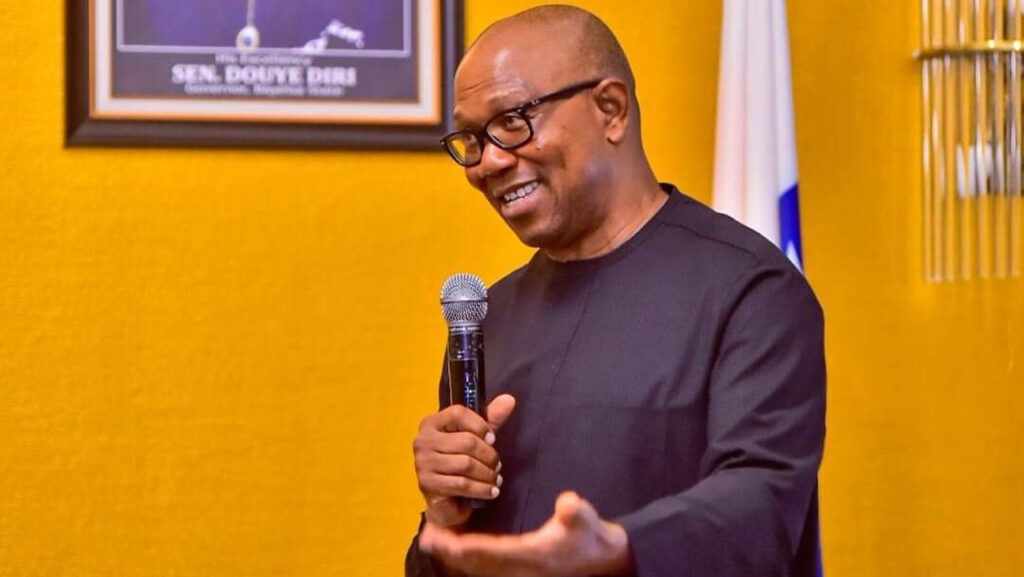
The Pandora Papers: Business Scandal Revelations
The inquiry is a component of the global Pandora Papers project, which is being directed by the International Consortium of Investigative Journalists (ICIJ). It was revealed that Obi’s involvement with offshore entities in tax havens like the British Virgin Islands and Barbados as a result of the disclosures of the Pandora Papers. It appears that Obi created some shell companies in the 1990s, with the Barbados-based Beauchamp Investments Limited and the UK-based Next International Limited connected to Obi and his family. This occurred before he held any governmental positions in Nigeria. According to additional reports, Obi also enlisted Access International’s assistance in 2010 to help him establish and run Gabriella Investments Limited, a British Virgin Islands firm that is named after Obi’s daughter, Gabriella. A Belize-based shell corporation that received 50,000 shares of Gabriella Investments was also run by one of the directors. In 2017, Obi restructured the business under the name PMGG Investments Limited and established a trust called The Gabriella Settlement as its only shareholder.
According to a report in the Premium Times, Obi breached various laws as a result of his business dealings. First, according to the investigation, Obi continued to serve as a director of Next International Limited while holding the office of governor of Anambra State, a clear breach of the Code of Conduct Bureau and Tribunal Act. In contrast, Obi said in an interview with Arise News that he resigned from all enterprises before becoming the governor of Anambra State and that this assertion was false and deceptive. Second, it asserted that Obi violated the Nigerian Constitution’s clause requiring public officials to disclose all of their properties, assets, and liabilities by failing to disclose his ownership of offshore firms. Finally, it was made clear by the leaks (and Obi’s response to them) that Obi kept his foreign accounts open while serving as Governor, despite the fact that both the Constitution and the Code of Conduct Bureau and Tribunal Act forbid public officials from maintaining bank accounts outside of Nigeria.
Following the allegations, civil society organisations pressed for probes into Obi while journalists questioned the EFCC about whether the agency would begin an inquiry into Obi. A few days after the article surfaced, Obi addressed it and stated that the funds in the accounts were accumulated during his tenure as a businessman, asserting that he had broken no laws. Later in October 2021, the EFCC requested to speak with him after Buhari ordered all anti-corruption organisations to look into people included in the leaks. However, Obi has never been the subject of a criminal investigation.
Ejection of Northerners from Markets in Anambra
Peter Obi was accused of ethnic and religious intolerance in some circles after becoming the Labour Party’s (LP) presidential candidate. He was accused of showing intolerance for Muslims and people from the North while he was governor of Anambra State, according to his accuser, AG Mahmoud. However, after making use of verification tools and fact-checking by PRNigeria, they could not locate from credible media sources any material linking the governor to some of the allegations against him, especially on his statements as well as the alleged order he allegedly made.
However, there is evidence to the contrary, showing that Governor Obi offered to help Muslims and others from the North restore a state mosque that had been destroyed. The state’s ongoing destruction, according to then-Gov. Obi was intended to make the state more attractive and cleaner for the residents. He made this statement in 2012 when he met with the Muslim Council of the state, which was led by its chairman, Alhaji Adudulraham Suberu. He pledged to rebuild the mosque at the location the government allocated for them after it was destroyed.
Also, Valentine Obienyem, the media adviser to Peter Obi, said the former governor did not eject northerners from markets they had occupied since the 1970s in the state.
N250 Million Money Laundering Controversy
The media was awash with news about a money laundering allegation brought by the Anambra state house of assembly against Peter Obi after an aide to Obi was found in Lagos with such an amount of money. Peter Obi was from the APGA party, while the assembly members were dominated by members from the PDP. However, it was refuted that the money was meant for a government contractor who preferred to receive his money in cash to buy the vehicles ordered by the government.
Obi had earlier petitioned the Inspector-General of Police, Sir Mike Okiro, urging him to look into the matter, particularly the angle that arms and foreign currency were discovered in his official cars that were going to Lagos for repairs and carried the said N250 million. He noted that the controversy surrounding the seizure of the aforementioned funds was a massive political plot to damage his reputation in what was a simple economic and contractual transaction, whereby the disputed funds have been given back to the contractor who is already buying the vehicles the funds were intended for. The opposition members later dropped the arms and foreign currency aspects of their allegations and later focused instead on the N250 million.
Diezani Alison-Madueke $115 million Money Laundering Case
In 2016, the Economic and Financial Crimes Commission (EFCC) listed Peter Obi as a possible accomplice in a $115 million money laundering investigation into the former Minister of Petroleum Resources, Diezani Alison-Madueke, aided by Fidelity Bank. The EFCC stated that Alison-Madueke had asked Nnamdi Okonkwo, Managing Director of Fidelity Bank, to assist her in handling some money that would be distributed to organisations and electoral officials in the run-up to the 2015 presidential election. It has been reported that Okonkwo, who was detained by the EFCC, claimed to have received orders from Obi, who is thought to be one of the bank’s founders, to visit Alison-Madueke’s home in Abuja for a “financial transaction that may benefit the bank.”
According to the EFCC, a transaction of that size could not have been completed without Obi’s help. Obi joined the People’s Democratic Party (PDP) toward the conclusion of his term and worked on former President Goodluck Jonathan’s campaign team. Theoretically, the $115 million claimed money transfer could only have been made by a bank whose owner is related to the former president’s campaign team, according to investigators.
The bank’s head of operations, Martins Izuogbe, was also detained by the EFCC for his suspected involvement in the alleged scheme, which the anti-graft organisation dubbed unparalleled. Peter Obi was, however, not questioned or prosecuted concerning the case. Fidelity Bank confirmed that the matter was being investigated by the EFCC and said the transactions were “duly reported as required by the regulators.”
Rabiu Kwankwaso: The Grand Leader of The Kwankwasiyya Movement
Rabi’u Musa Kwankwaso, FNSE, FNIQS, served as the governor of Kano state from 1999 to 2003 and again from 2011 to 2015. He served as the Fourth Republic’s first Minister of Defence from 2003 to 2007, after losing his bid for reelection that year. Later, in 2015, he was elected to the Senate, where he represented the Kano Central Senatorial District for one term on the platform of the All Progressives Congress (APC).
He presently serves as the New Nigeria Peoples Party’s national leader. In Kano and north-western Nigeria, Kwankwaso is well-liked and is thought of as a charming populist. In 2015, Kwankwaso ran for the All Progressive Congress’s presidential candidacy but was defeated by Muhammad Buhari. He rejoined the People’s Democratic Party (PDP) in 2018 and ran in the presidential primaries, but Atiku Abubakar prevailed. The New Nigeria Peoples Party (NNPP) has officially announced Rabiu Musa Kwankwaso as its presidential candidate for the general elections in 2023.
Kwankwanso is popular for his philanthropic acts and achievements in infrastructure and education. He is the first governor in Nigeria to introduce free school feeding and uniforms for primary school pupils. This exponentially increased the school enrolment figures from 1 million in 2011 to over 3 million in 2015 when he left office.
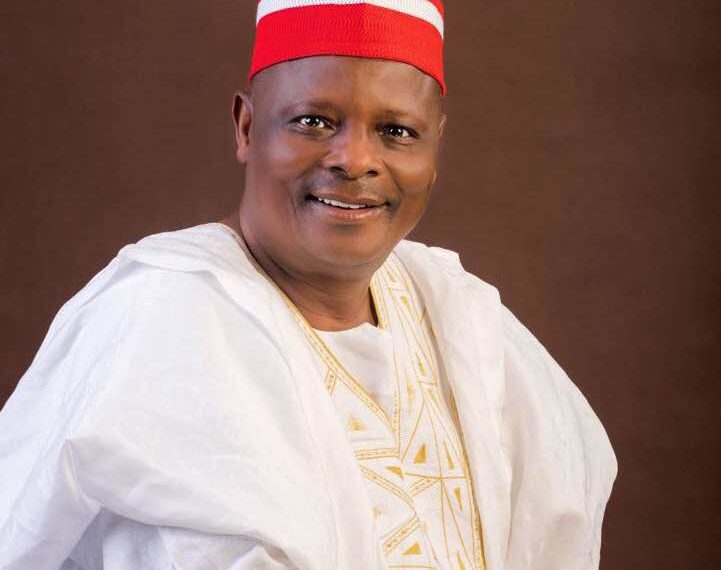
Hon. Justice Ahmed Badamasi Commission of Enquiry
Former Kano state governor, Ibrahim Shekarau, established a commission to investigate specific actions taken by the Kwankwaso-led government in Kano between May 29 and May 28, 2003. The commission was specifically entrusted with analysing and verifying projects, transactions, and contracts worth at least 10 million Naira.
The panel resolved that Kwankwaso had engaged in several falsehoods, and based on the government white paper produced by the committee’s conclusions and recommendations, steps were taken to have the former governor account for these errors of judgement. The former governor wasted nothing to thwart them, as attempts to invite him for a query failed time and time again. However, the cat and mouse game the former defence minister put the process through ended as the court of appeal in Kaduna, Nigeria, on February 23, 2006, dismissed the earlier lawsuit brought by the former governor, who had to deal with the EFCC.
The cases that were investigated were: one, the receipts and disbursements of ecological funds by the state government between 1999 and 2003; two, the withdrawal of 62,689,700.00 meant for the scholarship board; three, the disbursement of N97,524,000.900 to non-governmental organisations during the April 19, 2003, gubernatorial elections; and four, to investigate the loan/grant to Kano State Investment and Properties (KSIP) for the purpose of acquisition of shares of companies by individuals or government organisations.
The commission started meeting on March 19, 2004, and despite lawsuits filed by Kwankwaso, the principal target, they were successful in stalling progress. It was able to finish meetings, make its report public, and have the government release the white paper by November 2004, when Kwankwaso was indicted of all allegations levelled against him.
Kano State Pensioneers Vs. Kwankwaso
The Kano State Pension and Gratuity Law of 2007 was allegedly broken by Kwankwaso just before he exited office earlier that year, according to a petition submitted in 2015 to the Economic and Financial Crimes Commission. The group claims that Kwankwaso instructed pension transfers to be spent on housing development but that he instead interfered in a housing project to assign homes to his friends. According to the Concerned Kano State Workers and Pensioners organisation, the total amount of housing allocations and alleged financial embezzlement was close to N10 billion.
In his investigation into the mismanagement of N10 billion in pension funds, while serving as governor of Kano State, Kwankwaso was under investigation by the EFCC. On July 2, 2015, Justice Mohammed Yahaya of the Kano High Court prevented the EFCC from arresting or restraining Kwankwaso. However, on July 16, 2015, the same Kano High Court judge reversed his earlier decision and gave the EFCC a ruling allowing it to conduct an investigation, make an arrest, and bring charges against Kwankwaso. He was also given a 50,000 naira penalty by Justice Muhammed Yahaya for “time-wasting.”
The EFCC had allegedly invited Kwankwaso for questioning earlier in September 2021 on the suspected theft of a pension fund in 2015. According to the Premium Times, Kwankwaso originally disregarded the commission before handing himself over on October 16 for questioning.
Rabiu Kwankwanso’s Election Funding
According to a case filed on behalf of Engineer Abubakar Maisha’ani and Alhaji Najumai Garba Kobo by Barrister Mustapha Danjuma, Kwankwaso received N70 million from each of the state’s 44 local government councils (a sum of N3.08 billion) for his presidential primary in 2015. The EFCC sealed off a property belonging to Kwankwaso as part of investigations into his alleged diversion of local government funds amounting to N3.08 billion while he was Kano State’s governor between 2011 and 2015. A report surfaced that a former acting head of the EFCC, Ibrahim Magu, was discovered to have allegedly repressed Kwankwaso’s and other individuals’ (former governors) corruption cases.
According to the Justice Ayo Salami investigation panel, while in charge of the EFCC, Magu “directed designated operatives not to investigate” the allegations of corruption made against four people: Kwankwaso (Kano), Donald Duke (Cross River), Ibikunle Amosun (Ogun), who is currently a senator, and Ahmadu Fintiri, the governor of Adamawa state.
Would Nigeria Smile At The End?
The campaign for the 2023 general elections beckons on citizens of the Federal Republic of Nigeria. When the ban on electoral campaigns is lifted, different shades of campaign promises and manifestos of politicians will surface as a way of marketing themselves and what they have as a plan if voted in as the president.
In the previous elections, Nigerians preferred to go for “Change and Next Level,” which dumped the country into its current state. The search for the messiah to save the soul of Nigeria has already started, and it is left to the citizens to choose their saviour. Would Nigerians be looking for a messiah between the Okwute of Anambra (Obi) and the Kwankwasiyya Grand Leader (Kwankwaso)? Or would Nigerians be looking in the direction of the Lion of Bourdillon (Tinubu) and the Waziri of Adamawa (Atiku)? It is a matter of time, and the choice is yours to make.
Written by: Emmanuel Ojatunwase ([email protected])


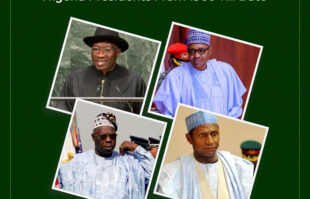
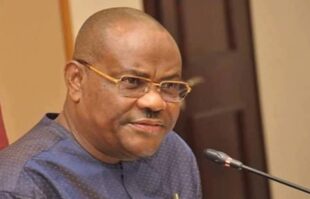
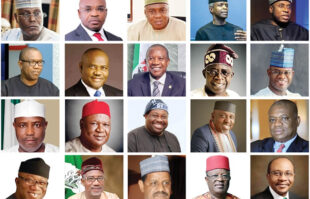
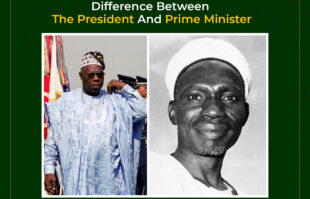
Comments
AYOKANMI EMMANUEL
4 years agoIf you ask me, na who I go ask?, Only God knows if Nigeria fit smile like this ooo….Nigeria is a movie industry jare, Obi self no obey common law, and people de shout like say na him be saviour….
Kwankwanso self………